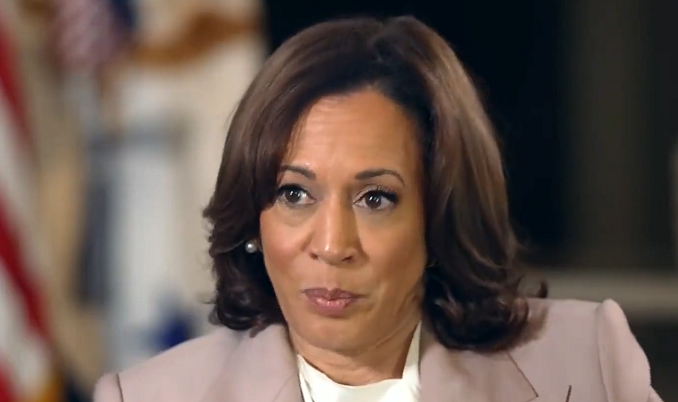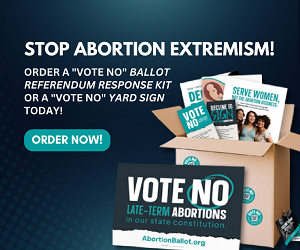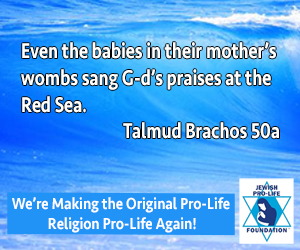A month and a week after President Joe Biden dropped out of the 2024 presidential race, some national polls show now-Democratic nominee Vice President Kamala Harris with a slight lead on the heels of a Democratic ad spending spree.
On Wednesday morning, The Daily Wire’s Ashe Schow reported that “the Harris campaign has outspent former President Donald Trump’s campaign by at least $47 million in digital ads and more than $20 million in ads on digital streaming services” over the past month.
Schow continued:
An analysis from The Daily Wire found that, between July 25 and August 23, the Harris Victory Fund and Harris for President campaign spent $27,388,780 on Meta ads, while the Trump National Committee Campaign spent just $2,631,466, according to the platform’s ad library.
The Harris campaign also targeted battleground states, with the top five being Michigan, Pennsylvania, Wisconsin, North Carolina, and Georgia. The Trump campaign targeted Pennsylvania broadly, Wilkes-Barre and Harrisburg specifically, as well as Atlanta, Georgia, and Bozeman, Montana.
Click here to sign up for pro-life news alerts from LifeNews.com
While not a competitive state in the presidential election, deep-red Montana is home to a hotly-contested U.S. Senate race between Democratic incumbent Jon Tester and Republican challenger Tim Sheehy.
Observers widely consider the race to be crucial in determining who controls the Senate for the next two years.
Furthermore, a Florida Atlantic University (FAU) / Main Street USA poll released on Tuesday showed Harris with a four-point lead over Trump nationwide – both among all respondents and among likely voters.
FAU’s Joshua Glanzer wrote that the poll shows “Harris has taken the lead over former U.S. President Donald Trump nationally, with 47% of voters supporting her compared to Trump’s 43%. Among likely voters, Harris leads 49% to 45%.”
Glanzer stated that Harris
has gained strong support among women, with 53% backing her, while 45% of men favor her. Trump’s base remains predominantly male, with 47% support from men, compared to 41% from women.
Harris also holds substantial advantages among Black voters (73%), Hispanic voters (51%), and white college-educated voters (57%). Trump, however, continues to command strong support among white voters without a college degree, with 59% favoring him.
…
Harris has also made significant inroads among Independent voters, now capturing 48% of their support, compared to Trump’s 35%. This marks a notable shift from July when Independents were more evenly split, with 45% backing Harris and 43% supporting Trump.
The poll was conducted from Friday to Sunday – in the immediate aftermath of the Democratic National Convention (DNC) that concluded the day before.
Throughout recent election cycles, presidential nominees have routinely experienced temporary support bumps following their parties’ respective conventions.
Although the poll measures the national popular vote, winners of presidential races are always determined by electoral votes regardless of who wins the popular vote nationwide.
Experts widely agree that the institution of the Electoral College gives Trump an advantage over Harris. This is largely due to Democratic support being concentrated in a few deep-blue states such as California and New York while Republican voters are more spread out across a variety of states.
In 2016, Trump lost the popular vote by two percentage points to failed Democratic nominee Hillary Clinton. However, he still won the electoral vote, and therefore the election, by a healthy margin, due to close victories in the battleground states of Pennsylvania, Wisconsin, and Michigan.
In American history, four Republicans have been elected president while losing the popular vote. No Democrat has ever won a presidential election without the popular vote.
According to FiveThirtyEight’s polling averages, Harris is narrowly ahead of Trump in most battleground states as of Wednesday, August 28 – albeit by mostly razor-thin margins within the margin or error.
Harris led in Arizona (by 0.8%), Michigan (by 3.0%), Nevada (by 0.8%), Pennsylvania (by 1.4%), and Wisconsin (by 3.5%). Trump led in Georgia (by 0.7%), and North Carolina (by 0.3%).
FiveThirtyEight arrived at these numbers by averaging together the results of various surveys from multiple pollsters and polling firms.
As Harris continues to narrowly lead Trump, many critics on the right have raised concerns that a host of polls may have oversampled Democratic and Democratic-leaning voters at the expense of right-leaning voters.
The nationwide FAU poll also included a section titled “Election Anxiety,” which demonstrated that the emotional outlook of undecided voters aligned much more closely with the sentiments of Trump supporters than with those of Harris supporters.
In fact, the poll revealed that undecided voters had an even greater negative outlook than Republican voters regarding the election.
Glanzer wrote that its findings “reveal a stark emotional divide as the election approaches, with negative emotions slightly outweighing positive ones by 44% to 41%.”
“This emotional split becomes more pronounced when viewed through the lens of voting intentions,” he added:
Harris supporters: 52% positive, 35% negative
Trump supporters: 34% positive, 49% negative
Undecided voters: 23% positive, 50% negative
“Notably, 27% of Democrats reported feeling excited about the election, while 32% of Republicans expressed fear,” Glanzer added.
Furthermore, a recently released Reuters/Ipsos poll showed that Harris may be making up ground against Trump on the economy and crime – both issues among those which voters say are most important to them this cycle.
The Hill reported the poll also demonstrated that slightly more voters support Trump’s economic plan (43%) than Harris’ (40%).
“A previous iteration of the survey, which came out in July, had Trump up by 11 points,” The Hill also noted:
The candidates were tied on crime at 40 percent, according to the poll, which was conducted in the days following the Democratic National Convention in Chicago. In the July poll, Harris was down 5 points to the former president on the issue.
However, with just over two months to go before the November 5 election, there are still several unknown factors at play that have the potential to shift the trajectory of the race.
Reuters noted:
It remains to be seen how the race will be affected by independent candidate Robert F. Kennedy Jr’s decision on Friday to suspend his campaign. Kennedy, who had attracted the support of about 8% of voters in a July poll, subsequently endorsed Trump.
Three days after Kennedy endorsed Trump, former Democratic Rep. Tulsi Gabbard officially endorsed him as well. “I’m committed to doing all I can to send President Trump back to the White House,” Gabbard said.
LifeNews Note: Anthony Iafrate writes for CatholicVote, where this column originally appeared.








